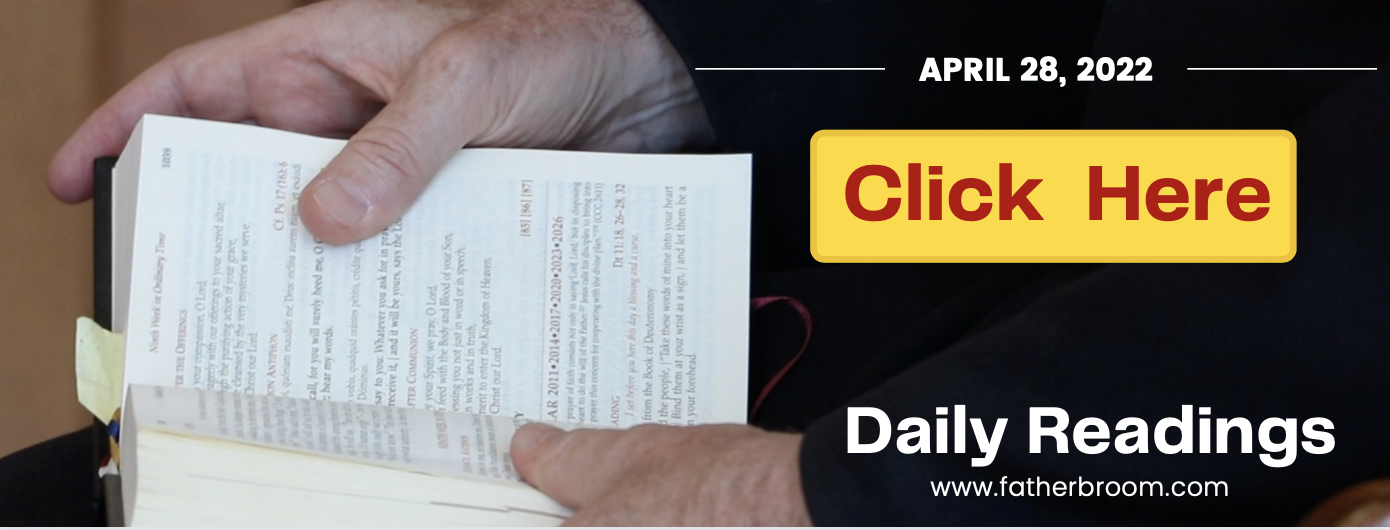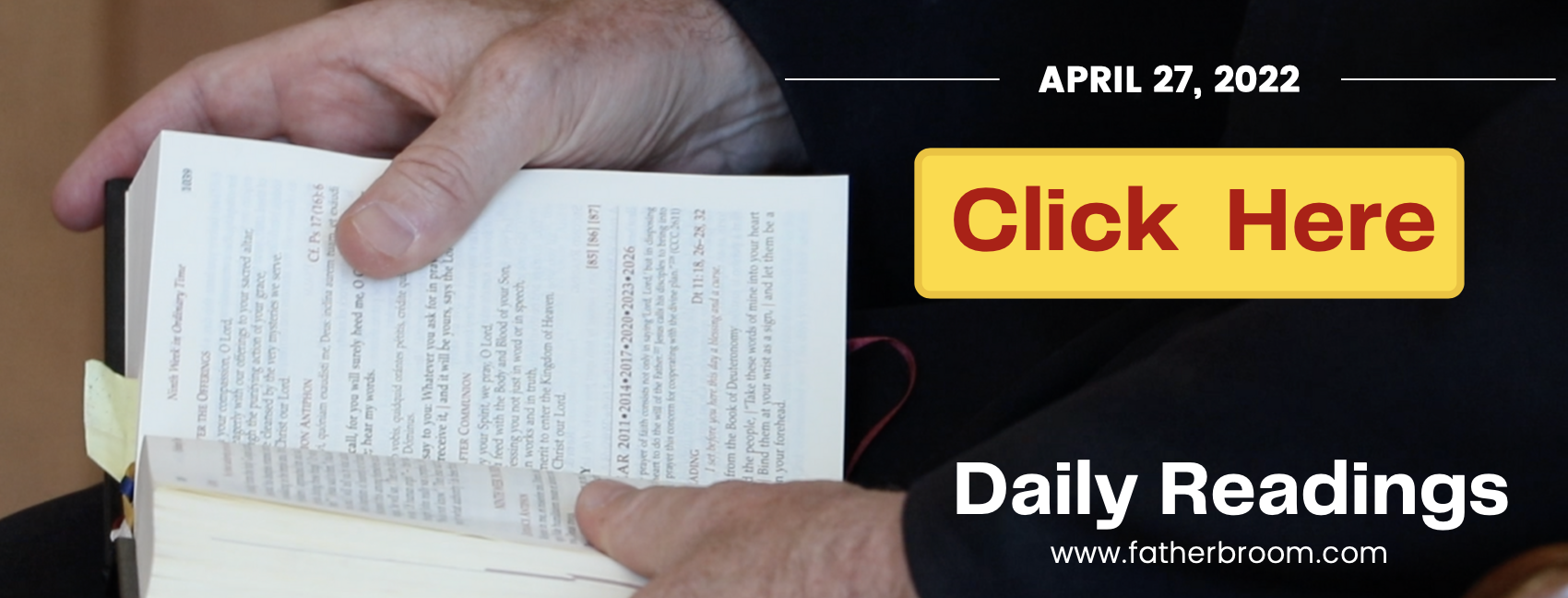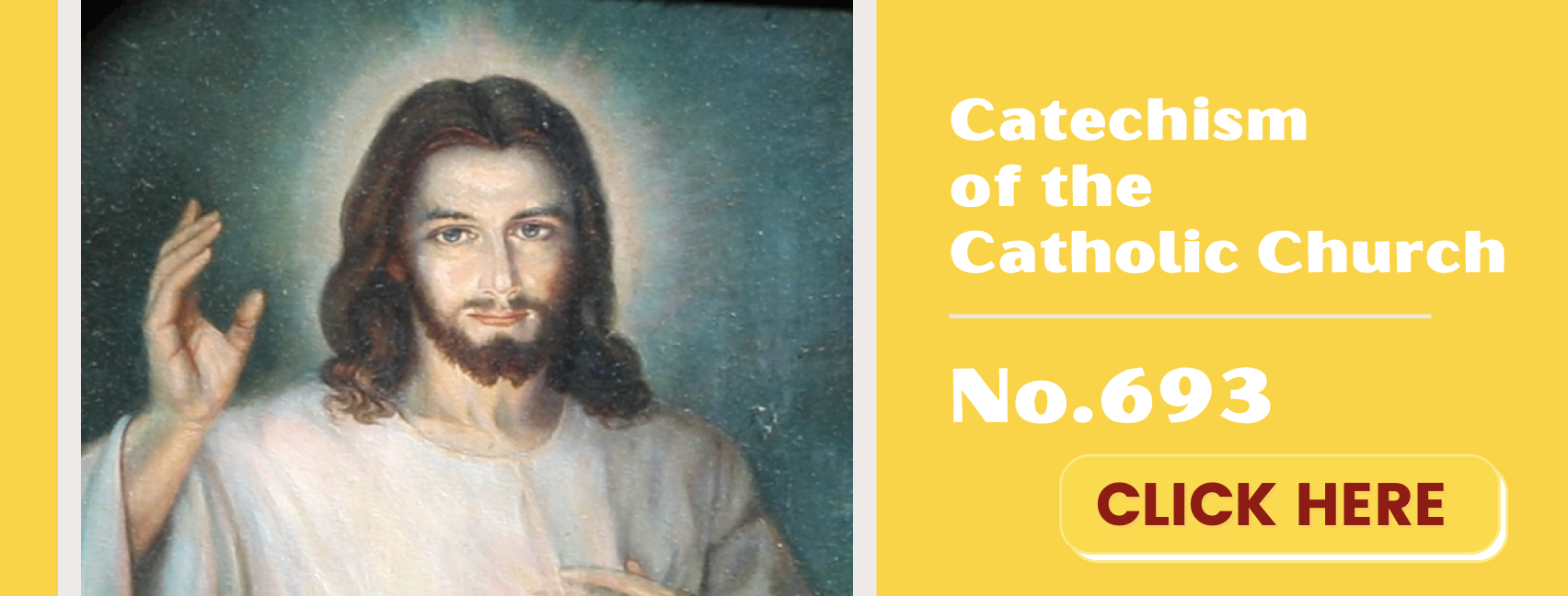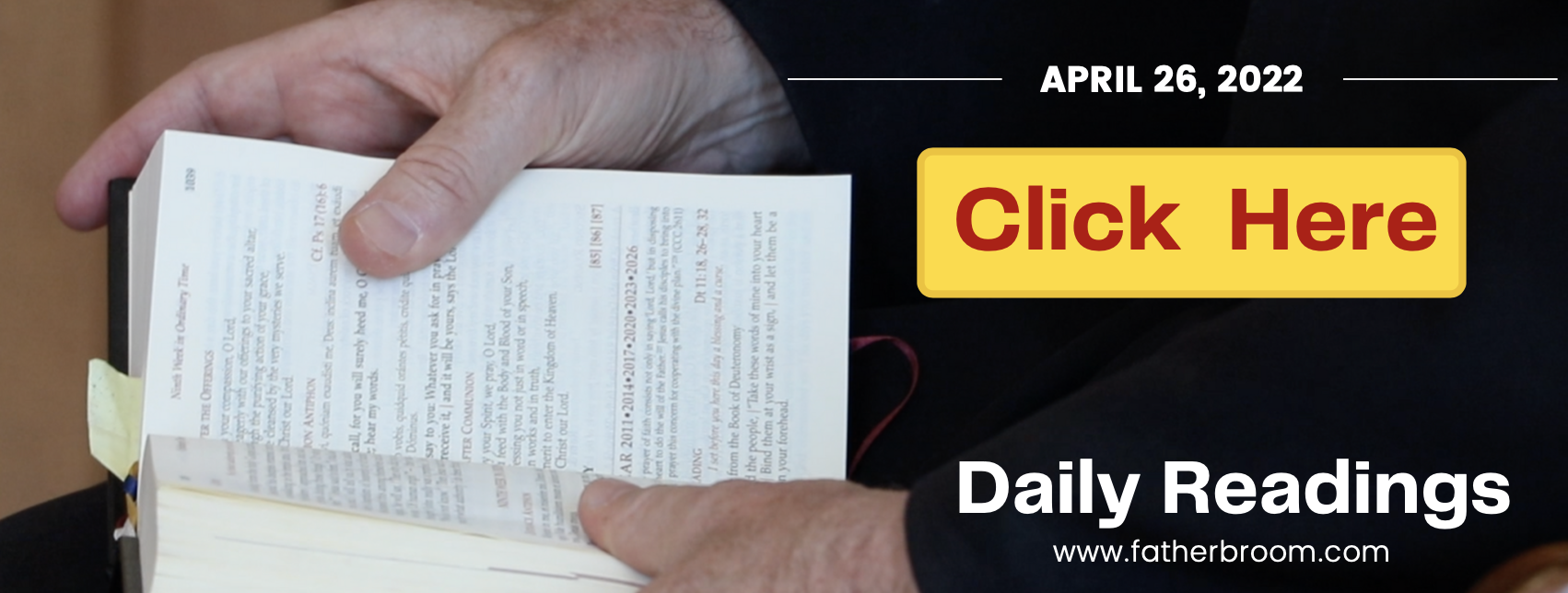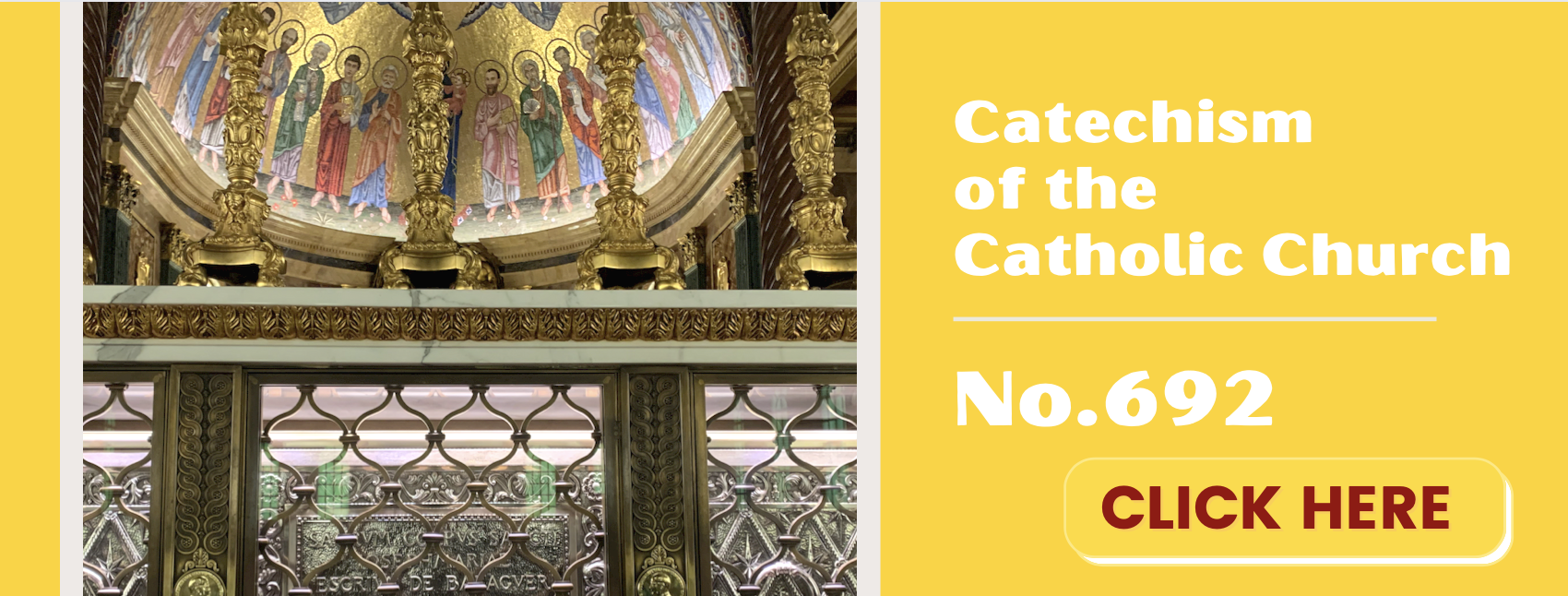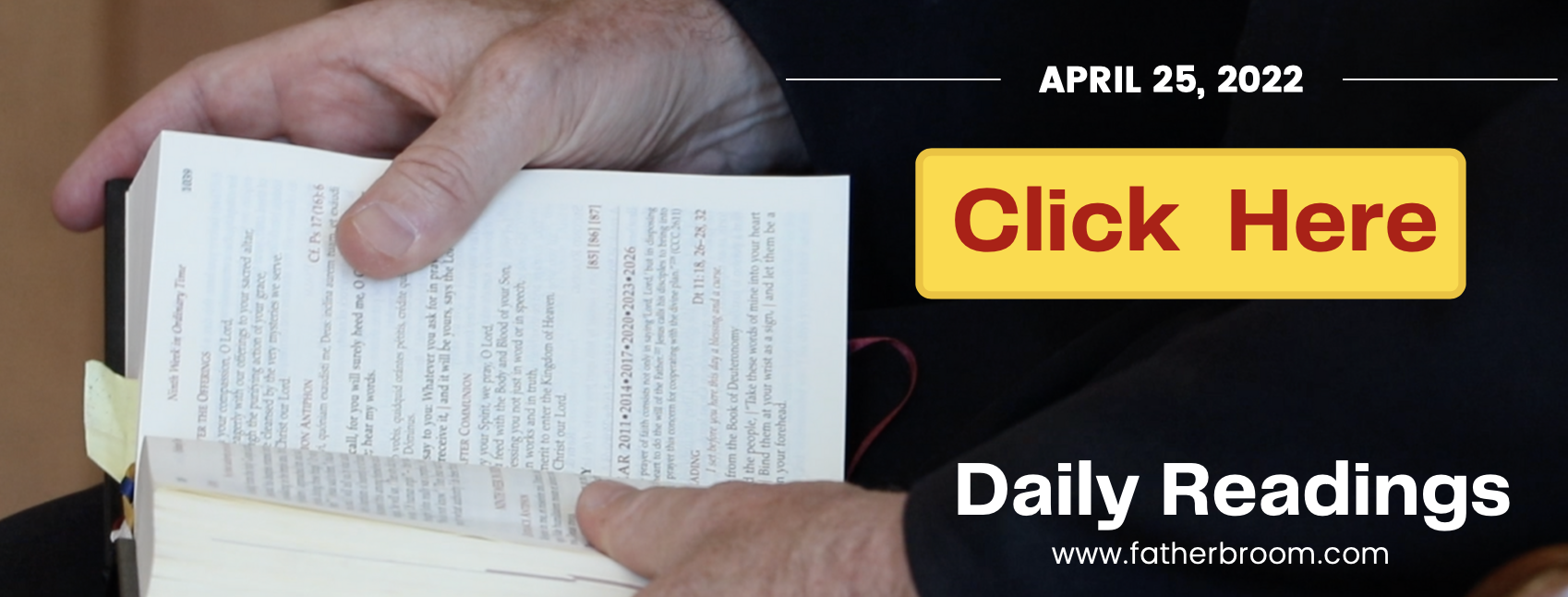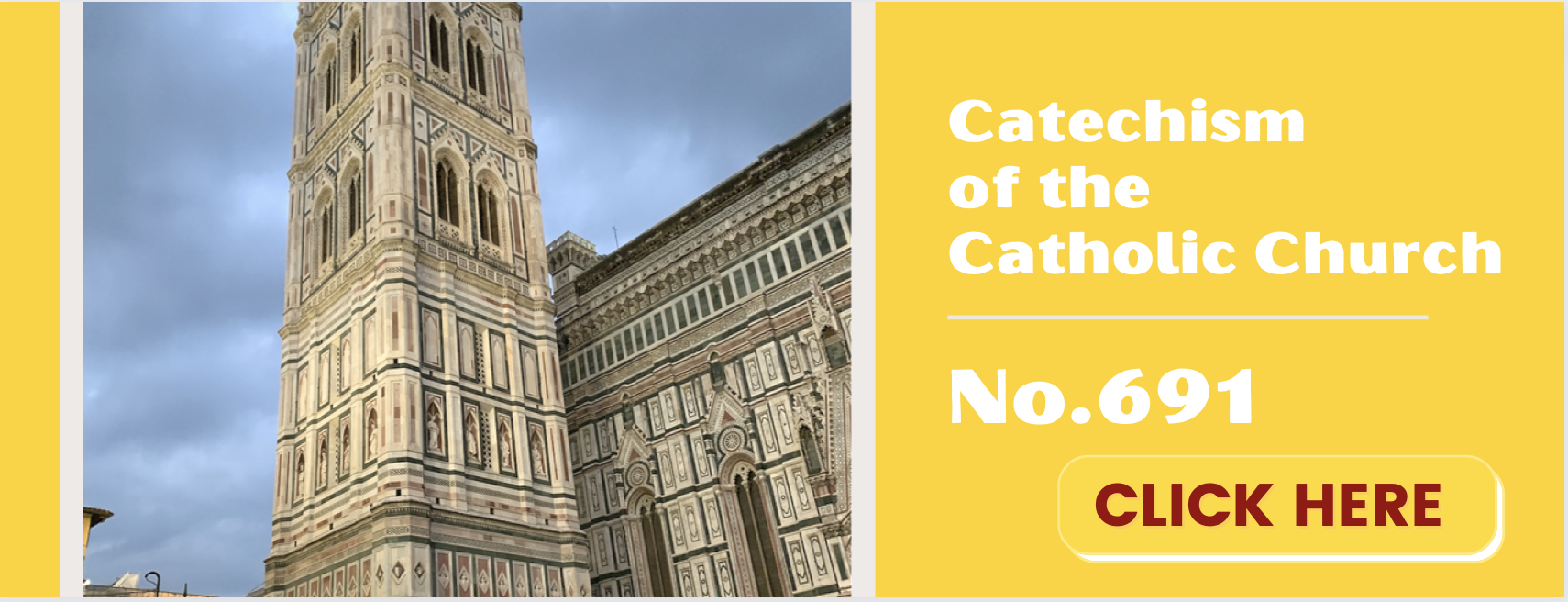Memorial of Saint Catherine of Siena, Virgin and Doctor of the Church
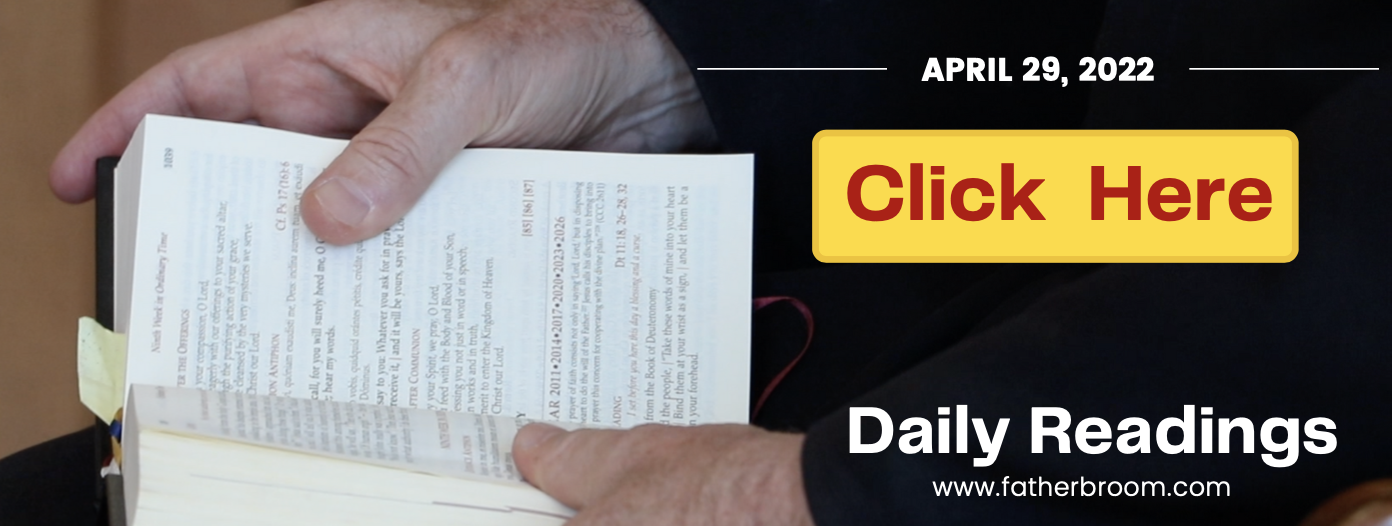
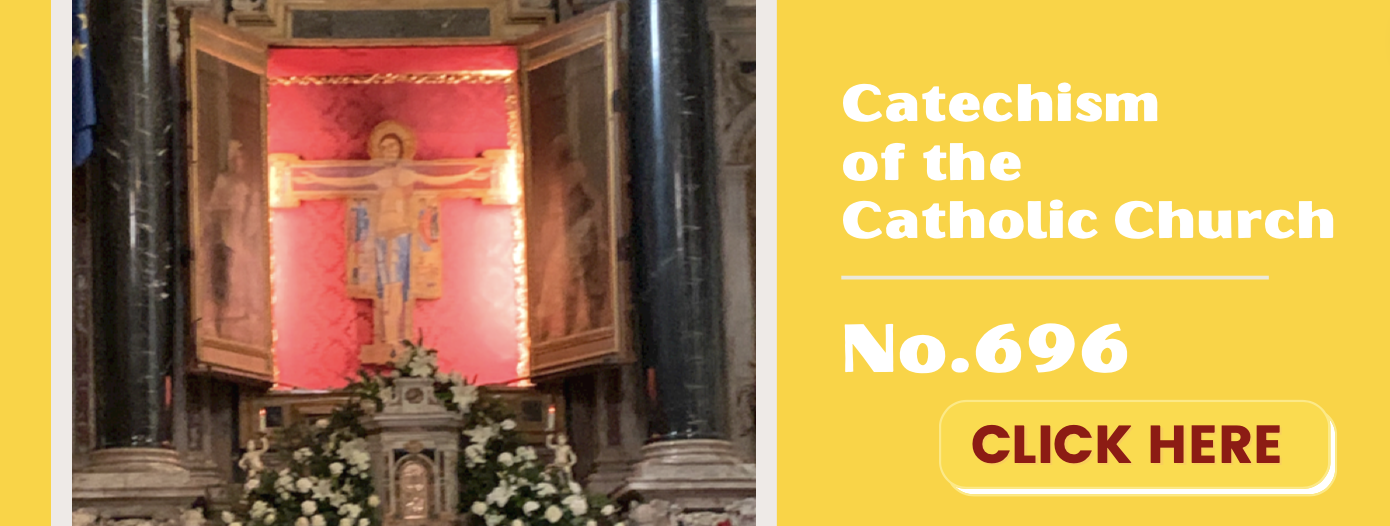

“For greater things you were born.” (Ven. Mother Luisita)
FRIDAY, April 29th Jn. 6: 1-15 Alleluia Verse: “One does not live on bread alone, but on every word that comes forth from the mouth of God.”
Yesterday we were reminded that we must become like little children and believe without seeing if we are to enter the Kingdom of Heaven! Today, Jesus teaches us to pray always in submission to our Heavenly Father as He did, with total trust and confidence in our Loving Father who only permits evil to bring a greater good out of it!
JESUS: OUR MODEL PRAYER-WARRIOR! By Fr. Ed Broom, OMV
Jesus is the Way, the Truth, and the Life. In all His words, actions, silences, miracles—Jesus serves as the best Model for us to study, meditate, contemplate, and of course imitate.
JESUS AT PRAYER. A good part of His private life, which lasted a good thirty years as the son of a carpenter in Nazareth, Jesus was absorbed in prayer. At the moment of His Baptism, Saint Luke presents Jesus absorbed in prayer. In the first Chapter of Mark, we read: “Very early in the morning, while it was still dark, Jesus got up, left the house and went off to a solitary place, where he prayed.” (Mk 1:35) Before choosing the twelve Apostles who would carry out His mission, Jesus spent the whole night in communion with the heavenly Father, once again, in prayer.
JESUS AS MODEL OF PRAYER IN THE GARDEN OF GETHSEMANE. The essence of this short essay will be to show Jesus’ deep, filial, fervent, humble, and you might even say heart-rending prayer that Holy Thursday night, shortly after the Last Supper, in the Garden of Olives. Let us step back and calmly contemplate all of the elements of Jesus’ prayer in the Garden of Olives, also called the Garden of Gethsemane. May this be an inspiring lesson for us so that we will strive with all the fiber of our being to improve and upgrade our own personal prayer life!
1. PRAYER—PLACE. Jesus habitually would go to the Garden of Olives where He would dedicate prolonged periods of silence to prayer, immersing Himself in a profound dialogue with Abba—Father! Likewise, we should have some specific place that is propitious for prayer, a place that fosters deep recollection and union with our Heavenly Father and with our Lord and Savior, Jesus. Venerable Archbishop Fulton Sheen found his prayer-abode in Church in front of the Blessed Sacrament. If this is not possible for you, at least find a place where there is silence. Why? God speaks most eloquently when we are not bombarded by noise-pollution. With the young Samuel we can listen and respond: “Speak O Lord, for your servant is listening!” (1 Sam 3:10)
2. PROSTRATION. In the Garden, Jesus prostrates Himself on the ground. Abram did this and God spoke to him. The Magi prostrated themselves before Jesus, the Infant King, and gave Him their gifts of gold, frankincense, and myrrh. Finally, at Fatima in 1916, the Angel taught the children—Lucia, Francisco and Jacinta—to kneel, and then prostrate themselves to address their prayers to God. The bodily posture of prostration is very deep in symbolism. It means humility, submission to God, and penance in recognition of our nature as sinners. God loves a humble heart; He wants us to submit our will to His will and He wants us to humbly beg pardon for our many sins!
3. FILIAL PRAYER. By filial we mean a prayer of loving trust and confidence between Father and son or daughter. Jesus calls His Father Abba—which loosely translated is Daddy! Like Jesus, our prayer must be one of loving trust in our Heavenly Father who loves us infinitely and cares for us always. Jesus assures us that not one sparrow will fall to the ground outside the Father’s care; and as for us, the Father even knows how many hairs we have on our head. (Mt 10:20-30)
4. SUBMISSION TO GOD. With His Passion, suffering, and death looming before Him, in a heart-rending prayer in the Garden, Jesus asks God the Father to remove this chalice of suffering from Him. However, Jesus ends with total submission to His Heavenly Father: “Father, not my will but your will be done!” (Mt 26:39) Our sanctification, growth in holiness, and perseverance depends in large part on assuming this attitude of Jesus—submitting our will to the will of our Heavenly Father. We reiterate Jesus’ interior disposition of heart when we pray the Our Father: “Thy kingdom come, thy will be done, on earth as it is in heaven.”
5. PERSEVERANCE IN PRAYER. A very interesting highlight of the model-prayer of Jesus in the Garden is that Jesus says this prayer three times: “Father, if it be possible, remove this chalice from me; nevertheless, not my will but your will be done.” The lesson? We must persevere in our prayer life to the very end. The message of the insistent widow clamoring for justice to the unjust judge is simply this: we must keep praying and never give up. Saint Teresa of Avila expressed it in these words: We must have a determined determination to never give up prayer.
6. PRAYER: COMPANIONSHIP AND FRIENDSHIP. In His humanity, Jesus desired His friends to stay and pray with Him in this critical moment. For this reason, Jesus kept His three best friends—Peter, James, and John, close to Him. However, this companionship in prayer was a total failure as His three chosen friends fell asleep, and more than once, when Jesus needed them the most. In essence, they failed Him. This is a key lesson for all of us. If we do not propose to pray well, fervently, and with trust, then like the Apostles, more than likely we will pray poorly, if at all, but also we will succumb to temptation and give in to sin. Jesus left us with these poignant words: “Stay awake and pray because the spirit is willing, but the flesh is weak.” (Mt 26:40) May we propose to be faithful to the Lord in good times and bad, in health and sickness, in riches and poverty, until the end of our lives. Spouses promise faithfulness to each other; so should we promise faithfulness to Jesus!
7. JESUS SWEATS BLOOD. According to Venerable Archbishop Fulton Sheen, the suffering of Jesus was so intense that He sweat Blood and for these reasons. All of the sins of humanity were descending upon Him like a torrential downpour—from the sins of Adam and Eve, your sins and mine, and all sins, even up to the last generation and last person in the world. However, what caused Jesus to suffer most was the cruel reality that many people, despite Jesus’ intense suffering for their sins, would willfully decide to reject His redemptive act, and choose to live and die in their sins unrepentant. Thus they would willfully lose their soul and be eternally damned. This reality of Jesus’ loving sacrifice rejected is what caused Him to suffer the most, to the point that He sweat huge drops of His Precious Blood. This bloody and anguished prayer of Jesus should motivate us to acknowledge our sins and make a firm purpose going forward to the best of our ability to renounce all sin, and renounce all that leads us to sin in any size, shape, or type! And if we fall, to return to grace as soon as possible through a good Sacramental Confession!
8. PRAYER OF REPARATION. Moreover, Jesus shedding His Precious Blood and His anguish of Heart should challenge us to offer frequent reparation for our sins and those of the whole world. In the words of the Chaplet of Divine Mercy: “Have mercy on us and on the whole world.”
9. THE ANGEL OF CONSOLATION. Immersed in the most profound state of desolation, God the Father consoles Jesus by sending an angel to Him, The Angel of Consolation. Exactly what went on in this encounter, we will know only in eternity. However, the most immediate interpretation and application should be the transference of the Angel of Consolation in the Garden to our own relationship with Jesus. Yes! You and I are called to be the ever present and active Angel of Consolation in the life of Jesus and in His Mystical Body that we call the Catholic Church. Why not try to make an effort to console the Wounded Sacred Heart of Jesus with your prayers of consolation and reparation? There are so many sins that need to be repaired for, today more than ever! Abortions, contraception, the practice of homosexuality and transgenderism, euthanasia, despair, and an overall religious indifference that is downright appalling! These sins and countless others need to be objects of our fervent prayers of reparation so as to be the modern Angel of Consolation in the life of Jesus!
10. OUR LADY OF SORROWS. In all of our meditations on the Passion of Jesus, most specifically the Agony in the Garden, which is the First Sorrowful Mystery of the Holy Rosary, we want to ask Our Lady of Sorrows to pray with us and pray for us so that our prayers might be transformed into a fragrant aroma of incense ascending on high to the heavenly heights—to the throne of God Himself, where Jesus sits at the right hand of the Father. May our prayers, united with the prayers of Our Lady of Sorrows’ fervent prayers, bring consolation to the wounded Heart of Jesus and result in the salvation of countless souls!
